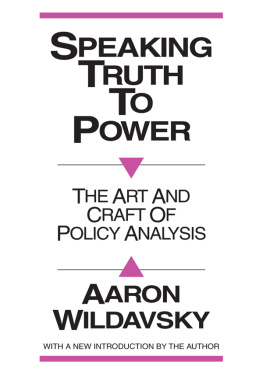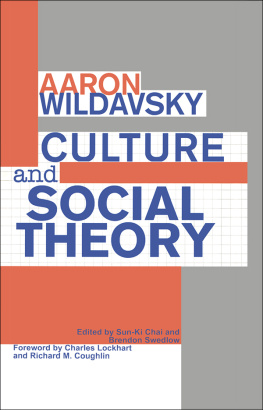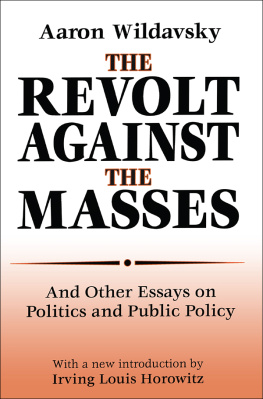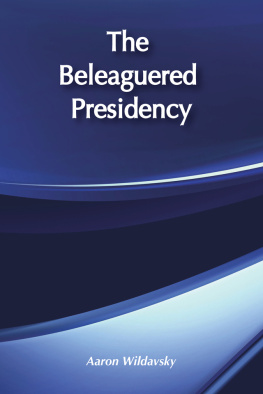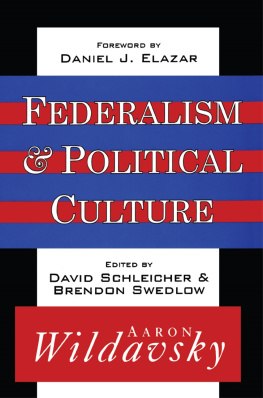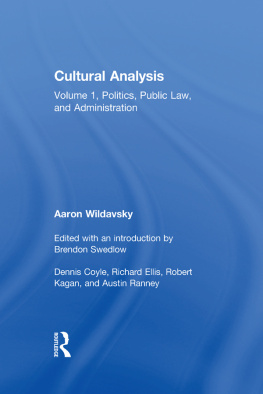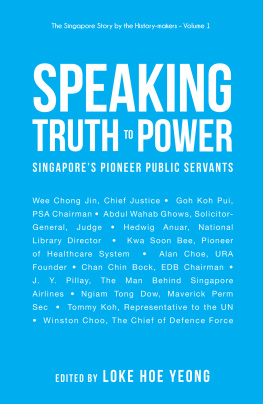Aaron Wildavsky - Speaking Truth to Power: Art and Craft of Policy Analysis
Here you can read online Aaron Wildavsky - Speaking Truth to Power: Art and Craft of Policy Analysis full text of the book (entire story) in english for free. Download pdf and epub, get meaning, cover and reviews about this ebook. year: 1979, publisher: Routledge, genre: Politics. Description of the work, (preface) as well as reviews are available. Best literature library LitArk.com created for fans of good reading and offers a wide selection of genres:
Romance novel
Science fiction
Adventure
Detective
Science
History
Home and family
Prose
Art
Politics
Computer
Non-fiction
Religion
Business
Children
Humor
Choose a favorite category and find really read worthwhile books. Enjoy immersion in the world of imagination, feel the emotions of the characters or learn something new for yourself, make an fascinating discovery.
- Book:Speaking Truth to Power: Art and Craft of Policy Analysis
- Author:
- Publisher:Routledge
- Genre:
- Year:1979
- Rating:3 / 5
- Favourites:Add to favourites
- Your mark:
- 60
- 1
- 2
- 3
- 4
- 5
Speaking Truth to Power: Art and Craft of Policy Analysis: summary, description and annotation
We offer to read an annotation, description, summary or preface (depends on what the author of the book "Speaking Truth to Power: Art and Craft of Policy Analysis" wrote himself). If you haven't found the necessary information about the book — write in the comments, we will try to find it.
Speaking Truth to Power: Art and Craft of Policy Analysis — read online for free the complete book (whole text) full work
Below is the text of the book, divided by pages. System saving the place of the last page read, allows you to conveniently read the book "Speaking Truth to Power: Art and Craft of Policy Analysis" online for free, without having to search again every time where you left off. Put a bookmark, and you can go to the page where you finished reading at any time.
Font size:
Interval:
Bookmark:
to Power
of Policy Analysis

2 Park Square, Milton Park, Abingdon, Oxon OX14 4RN
711 Third Avenue, New York, NY 10017, USA
Original edition copyright 1979 by Aaron Wildavsky.
Product or corporate names may be trademarks or registered trademarks, and are used only for identification and explanation without intent to infringe.
Speaking truth to power.
| H97.W535 1987 | 361.6' 1' 0973 | 87-10749 |
M.V.M.F.R.J.D.
TO THE TRANSACTION EDITION
THE TRANSACTION EDITION:
Analysis as Art
Resources versus Objectives
Policy Analysis Is What Information Systems Are Not
Strategic Retreat on Objectives: Learning from Failure in American Public Policy
Policy as Its Own Cause
Coordination without a Coordinator
Social Interaction versus Intellectual Cogitation
Between Planning and Politics: Intellect vs. Interaction as Analysis
A Bias Toward Federalism
Opportunity Costs and Merit Wants
Economy and Environment/Rationality and Ritual
Dogma versus Skepticism
The Self-Evaluating Organization
Skepticism and Dogma in the White House: Jimmy Carter's Theory of Governing
Citizens as Analysts
Policy Analysis
Doing Better and Feeling Worse: The Political Pathology of Health Policy
Learning from Education: If We're Still Stuck on the Problems, Maybe We're Taking the Wrong Exam
A Tax by Any Other Name: The Donor-Directed Automatic Percentage-Contribution Bonus, A Budget Alternative for Financing Governmental Support of Charity
A Sensitivity Analysis
An Analysis of Criteria
Distribution of Urban Services
Analysis as Craft
Font size:
Interval:
Bookmark:
Similar books «Speaking Truth to Power: Art and Craft of Policy Analysis»
Look at similar books to Speaking Truth to Power: Art and Craft of Policy Analysis. We have selected literature similar in name and meaning in the hope of providing readers with more options to find new, interesting, not yet read works.
Discussion, reviews of the book Speaking Truth to Power: Art and Craft of Policy Analysis and just readers' own opinions. Leave your comments, write what you think about the work, its meaning or the main characters. Specify what exactly you liked and what you didn't like, and why you think so.

